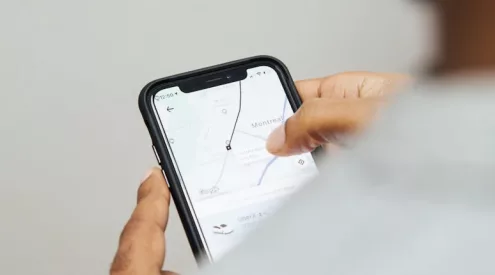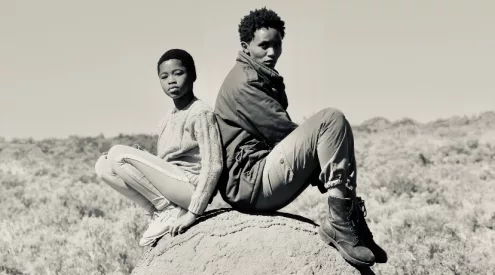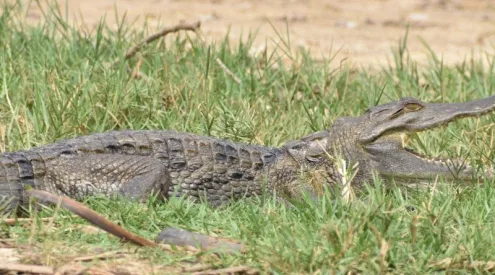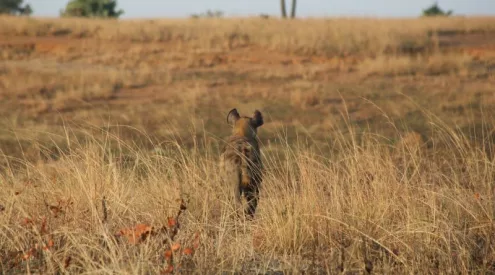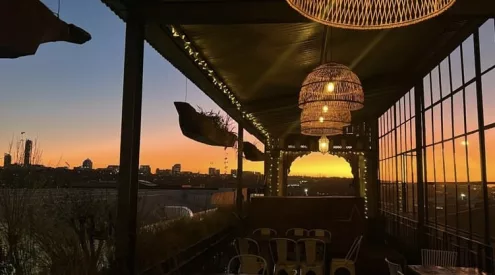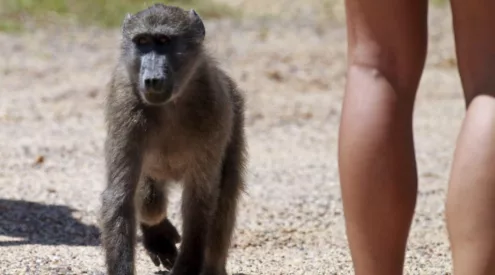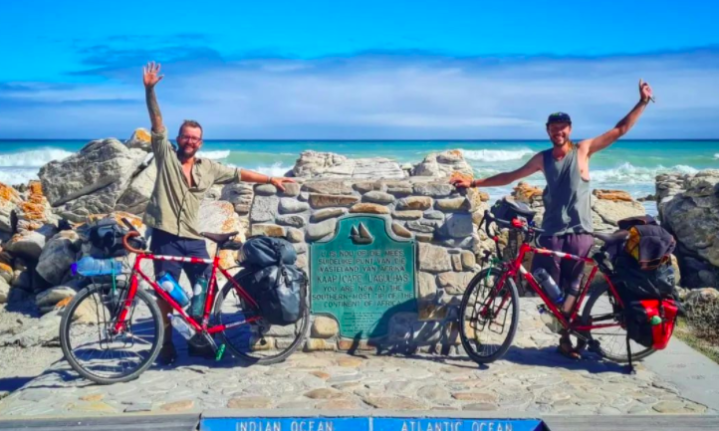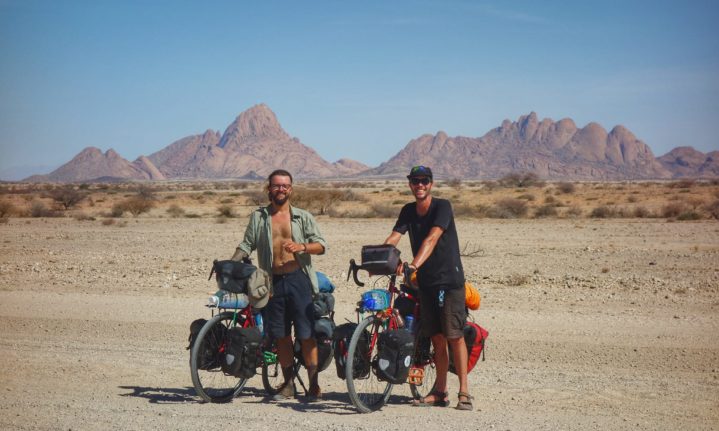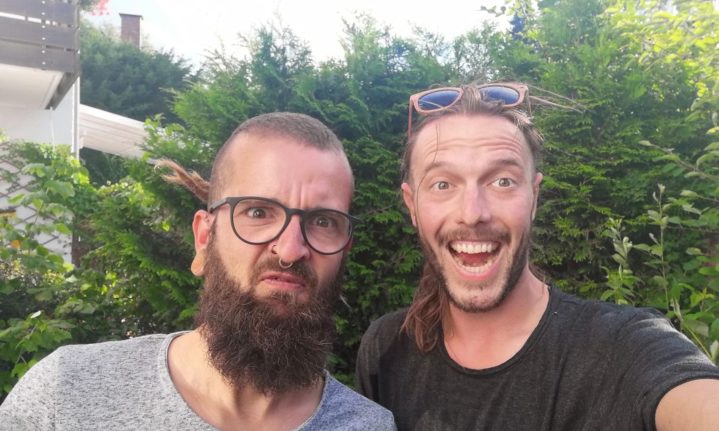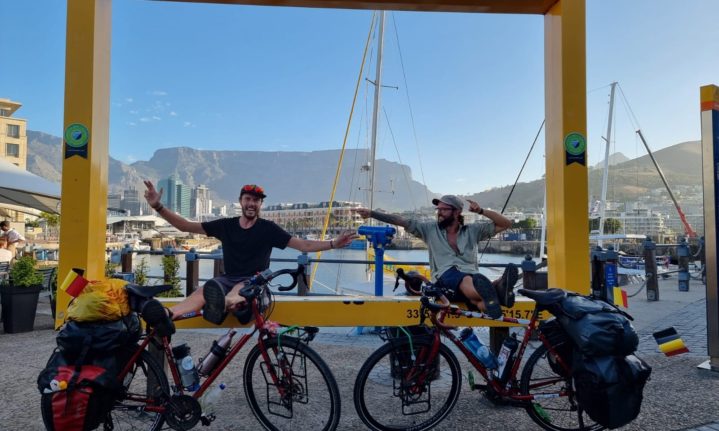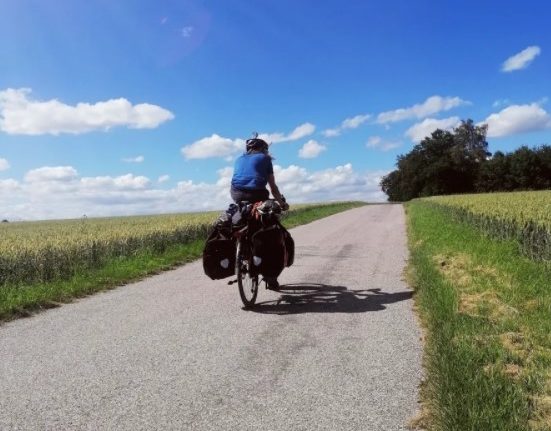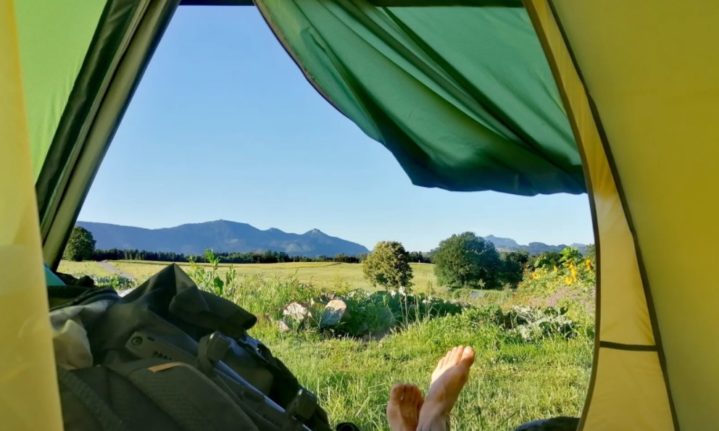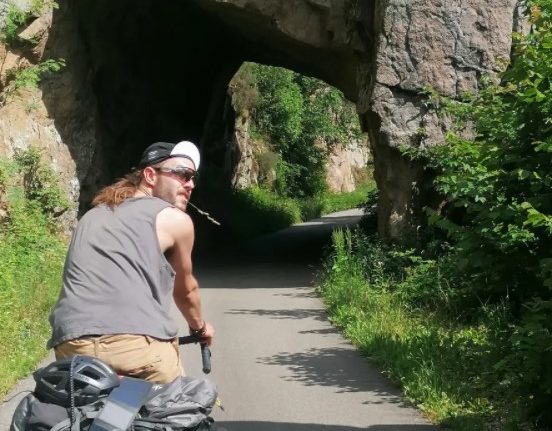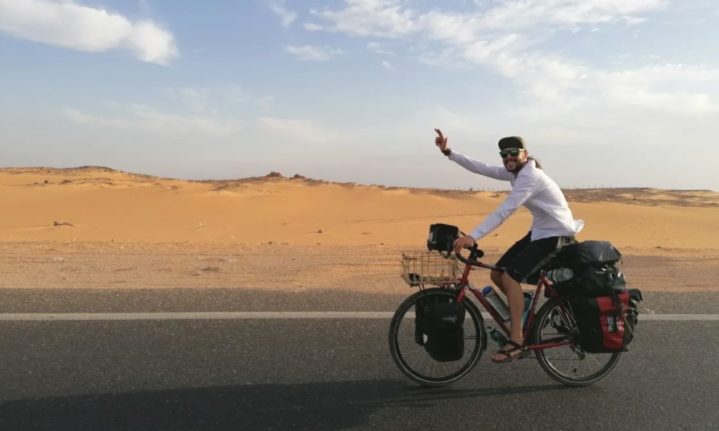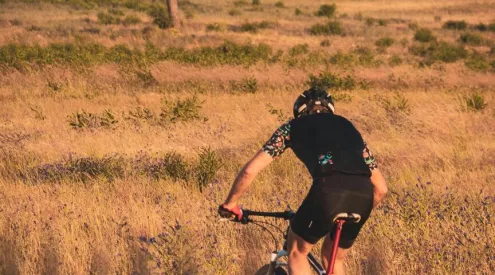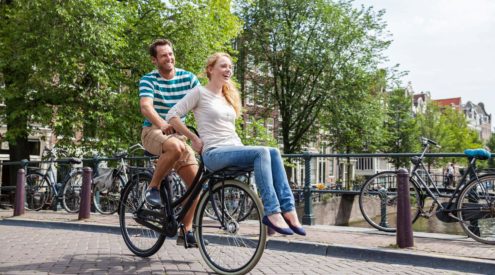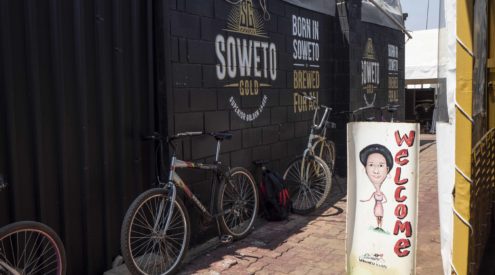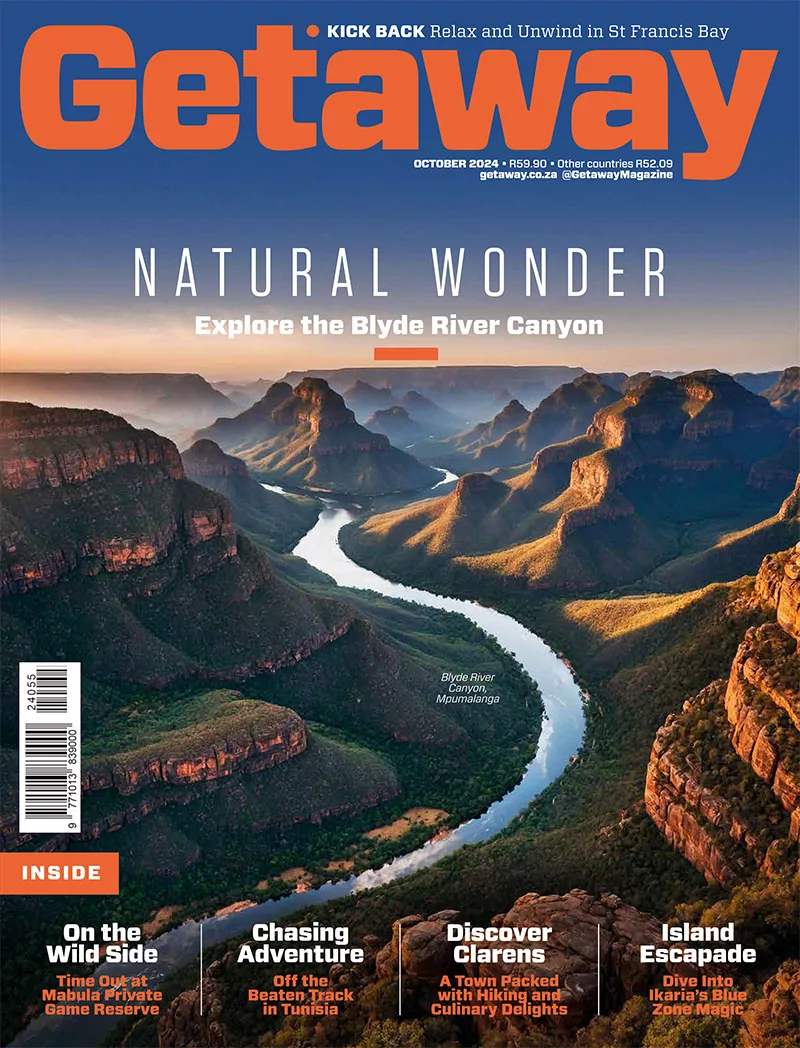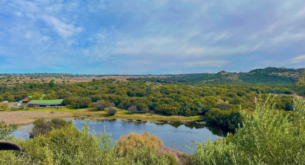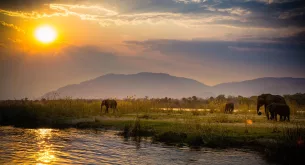Jelle and Koen are two best friends who are on a mission to cycle around the world.
Both were born in Belgium and after meeting in 2017 at a festival in Portugal, they have experienced countless adventures together.
In early 2020 Koen told Jelle about his dream to cycle the world on a bike. With close to no prior bike touring experience, they both agreed to go ahead with planning this crazy journey. Calling themselves the ‘Steel Donkeyz‘, the two adventurers have just finished the Cape Town Cycle Tour in Cape Town, after having cycled through 27 countries so far. Their next stop is Portugal.
So, what does it take to successfully travel the world on two wheels? We chatted with Koen and Jelle to find out.
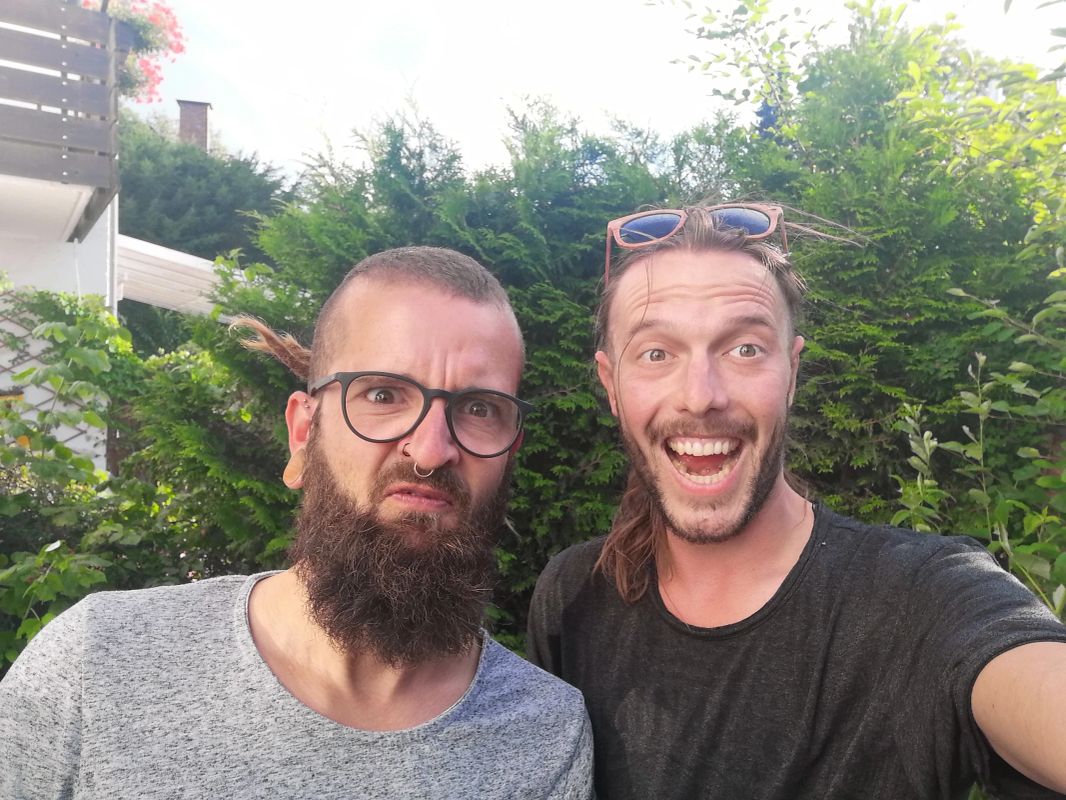
Before embarking on your journey, how did you prepare yourselves physically?
‘We both bought our beloved Trek 520’s in February 2020 and planned on leaving in March, but Covid decided otherwise. That gave me (Jelle) time to ride about 1000 km on the bicycle before our new starting date. I would often cycle from my home to Koen’s home which is about 40 km one way. I wasn’t completely physically prepared for a trip of this magnitude but you get fit while riding. Koen was a lot more fit than I was before leaving. In the first two weeks, I was pretty destroyed after 40 to 50 km. After two weeks we averaged 60 to 80 km and before I knew it we did our first 100 km ride. Now, a 100 km ride is an easy day.’
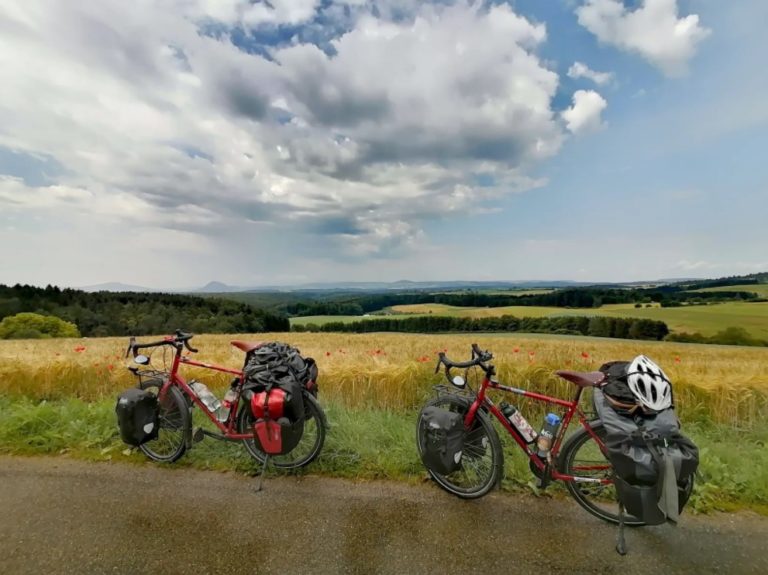
Their two bikes parked close to the Swiss border
Did a lot go into your mental preparation?
‘I don’t think you really can be fully mentally prepared for a trip like this. You just have to be extremely flexible and be able to change your expectations. Everything always changes when you’re on the road, so don’t plan too much. For example, we were never even planning to come to Africa in the first place.’
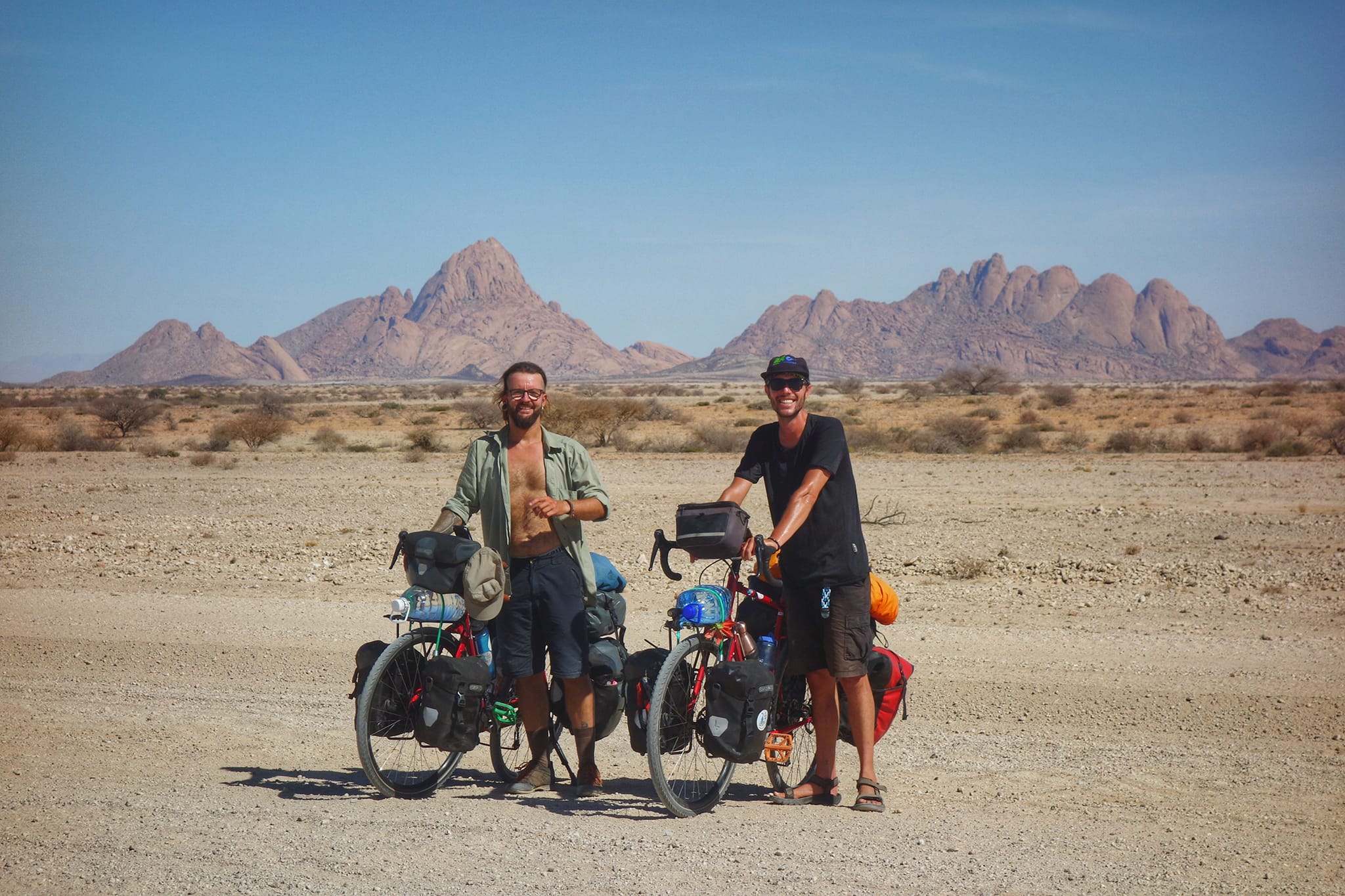
Jelle and Koen in Swakopmund, Namibia
What did you have to consider when planning your route?
‘Our initial plan was to cycle towards the east and come back in the west. We wanted to do a circumnavigation of the globe, so to speak. When we reached Turkey we had an important decision to make. Covid meant that the road was completely closed to the east, so we decided to fly to Egypt and cycle towards South Africa.

Photo stop in Lusaka, Zambia
‘Africa at the time, seemed like the only continent where travelling was still possible without too many border issues. Of course, we had to do a whole bunch of PCR tests. We never really planned further than a few days ahead because situations can change so fast. Sometimes we ended up staying for two weeks in a place we never even really planned to be at.’
How many countries have you cycled through so far and how many do you have left?
‘We have cycled in 27 countries so far. We plan to fly to Portugal having completed the Argus here in Cape Town. We will visit some friends there and then we will slowly cycle towards Belgium, passing by Spain and France.’

Jelle battling a hill in the Allgäu area in Bavaria
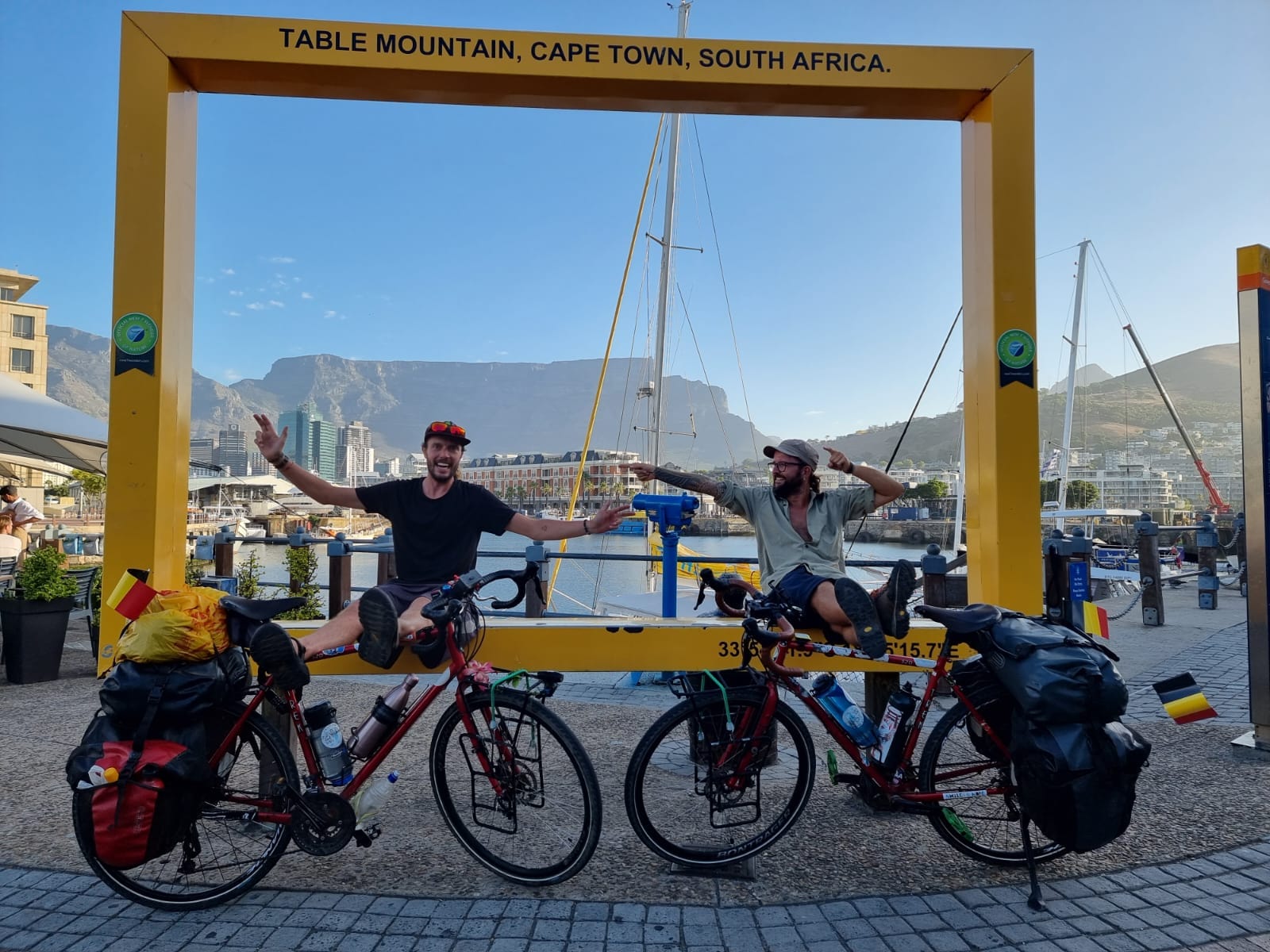
Just how much do you love South Africa?
After many weeks of gravel riding, it felt awesome to do some paved roads again. The first couple of 100 kilometres in South Africa weren’t the easiest ones. We often had to battle strong headwinds and temperatures were also still going through the roof.
Nonetheless, we enjoyed every ride. Knowing that South Africa would be our last African country, put an extra dimension and vibe to the riding. Being so close to our final destination made us feel strange but highly motivated, melancholic but super stoked. We found ourselves cycling, lost in the middle of very mixed feelings, emotions and thoughts.

The two celebrating having cycled from Belgium to the southernmost point of Africa, Cape Agulhas. They pedalled 21 500 kilometres through 27 countries in 248 days
Before we knew it, we found ourselves cycling amidst proud mountains, lush meadows, magical forests, and crystal clear creeks again. The surroundings felt very familiar, almost European-like. We felt reborn, truly. Even though deserts are magnificent, peaceful and alive in their own special way, they’d soon become a harsh place for mind and body, especially when cycling through them.
What does a typical day on the bike look like for you?
‘Depending on when the sun comes up, we usually wake up when the first light hits. We pack our tents and have a quick breakfast. I (Jelle) also make coffee on our little MSR stove. At around 6 to 7 am, we start cycling for about two to three hours. Then we like to stop for a small snack, either from a roadside stall or from the foodstuff we keep on the bicycle, depending on where we are cycling.
‘We then cycle another two hours until midday and stop for a longer break to have some lunch. In the afternoon we usually cycle as well, unless the sun is too intense. In Namibia, for example, we often had to stop at around 1 pm because it was just too hot. We would then try to find shelter under a tree or whatever we could find and wait out the hottest hours of the day. At around 4 pm we could then continue and push for another two hours. We would then try to find a suitable camping space (either a wild camp or ask around to find somewhere else).
‘In the evening we almost always cook a fresh meal, usually pasta with veggies, or whatever we find during the day. At 8 pm we are usually in the tent and at 9 pm we aim to go to sleep.’

Jelle riding through the desert in Egypt
How do you manage to carry all you need to survive with so little space?
‘We have 5 Ortlieb cycle bags (2 small ones in the front, 2 big ones in the back and 1 rack pack). At the start of our trip, we had around 40 to 50 kg of luggage. Now, after cycling for one year and nine months we have downsized and now carry about 30 kg. Once you’re on the road you start noticing that you don’t need so many things to survive.’

Frozen waterfall IN Marovo national park, Macedonia
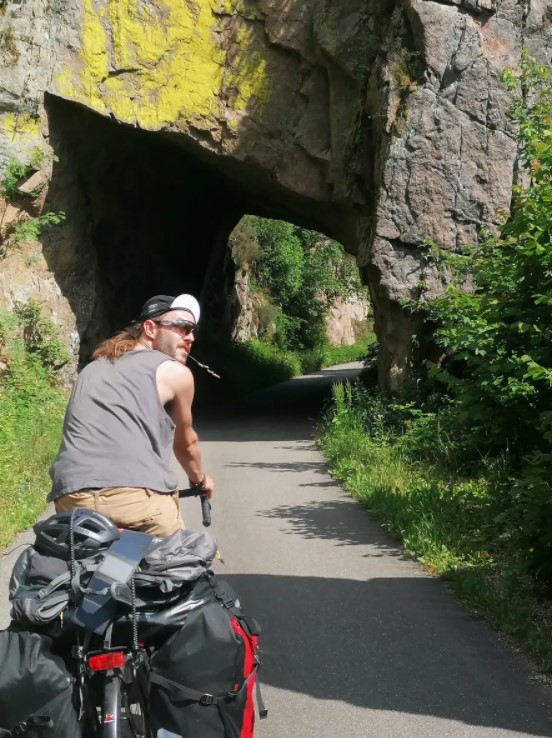
Jelle riding through Black Forest Mountain Range in Germany
And have you faced any physical challenges?
‘In Sudan, in the desert, there was often only Nile water available to drink. The locals told us the water was safe, so we drank it without purifying it which was a mistake. At the beginning of the trip, I had some knee and ankle problems as well but that went away with changing my saddle height.’
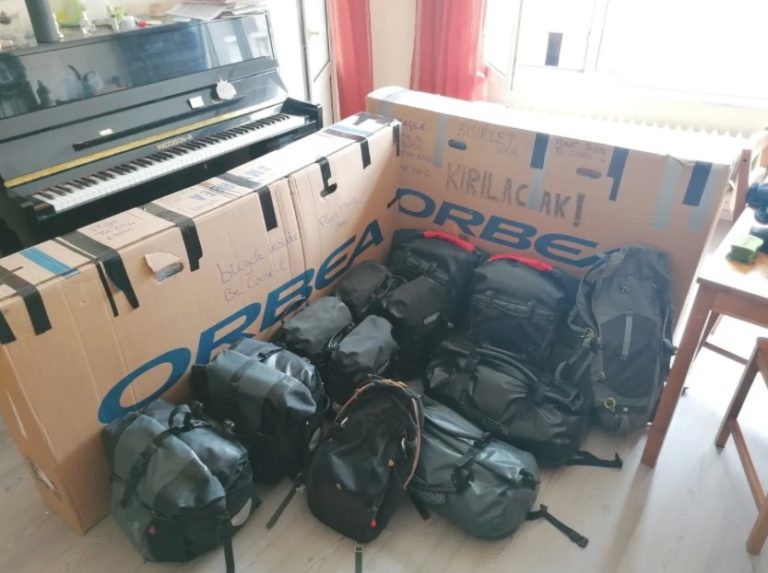
All the bags packed in Istanbul for a flight
How do you cope with the challenges of cycling outdoors with the risk of unpredictable weather?
‘We have both winter and summer clothes and also some clothes to protect us from the rain. We also have a good weatherproof tent and a down sleeping bag for the cold winter nights back in Europe. In Bulgaria, we got completely snowed in while camping and the temperatures got as low as -15 °C.
‘In Africa though, we basically had a heatwave following us throughout the continent. In the Sahara, we cycled in temperatures up to 50 °C. We quickly decided to start cycling at night.’
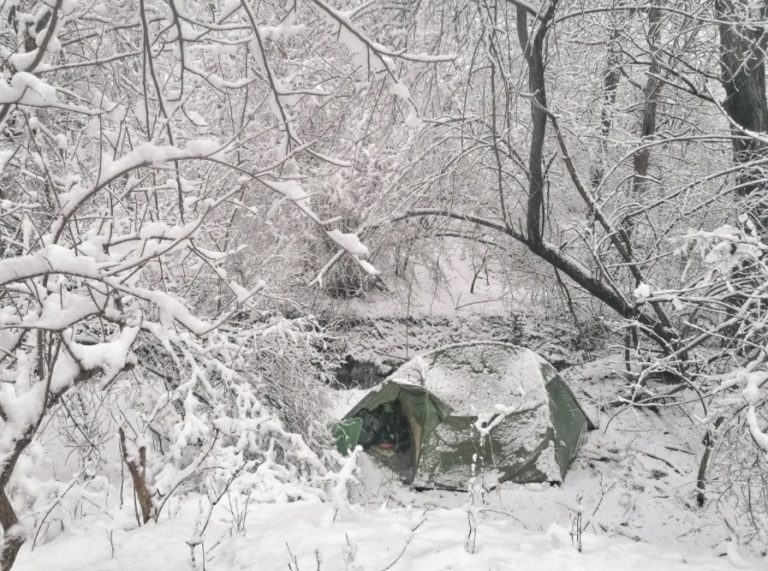
Their tent after camping in Bulgaria
Can you think of a specific moment on your journey that had a positive impact on you?
‘It’s hard to choose a specific moment as the whole journey has a major impact on your whole being. One of the more intense moments must have been when we finally reached the ocean again in Namibia after cycling for more than 13 000 km throughout the African continent.
‘In general, I would say it’s the small things that happen every day while cycling. People’s eyes light up when you cycle by, giving you a thumbs-up or shouting some encouraging words to you. It’s those small but powerful things that make it worthwhile to keep pushing every day.’

Boarder crossing from Serbia to Bulgaria
How do you keep yourselves strong mentally?
‘I think it helps a lot being two people. You can encourage each other when you’re feeling down or complain to each other when it’s tough. Apart from that, I think eating healthy and physical exercise also do wonders to keep you both mentally and physically fit. Of course, there are moments when you don’t see the point anymore in pushing on, but when you then finally reach your goal in the evening, the reward is just that much bigger!’

Morning view in Munich
What is the first thing you’ll do when you have finished your adventure?
‘Visit friends and family, go and have some Belgian beers in a bar and eat Belgian fries.’
To keep up to date with Jelle and Koen, visit their blog and see more pictures from their exciting adventure.
Pictures: Supplied
ALSO READ
Namibia drops mask mandate and PCR test for vaccinated visitors


